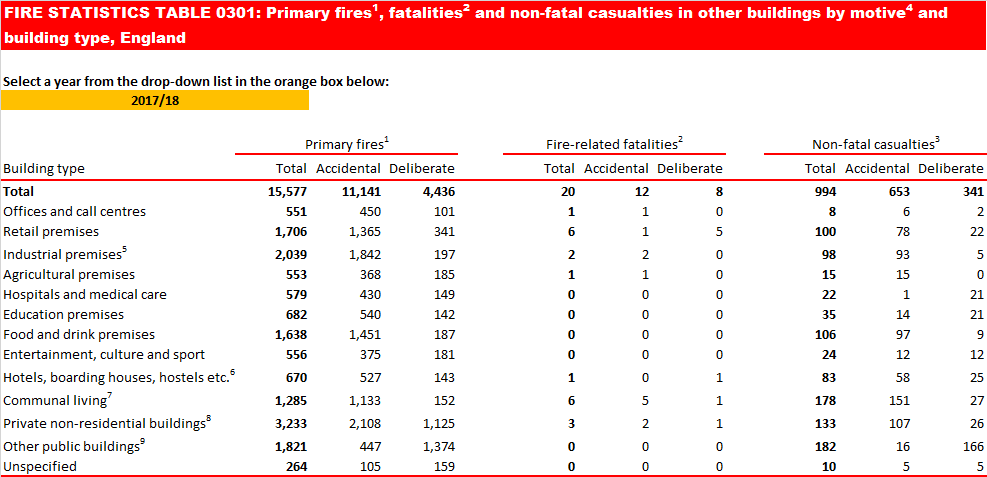
by Clair Mooney | Mar 21, 2019 | Main News Feed
The National Minimum Wage and National Living Wage rates will increase on 1 April 2019
The rates will increase as follows:
| Age bracket |
Current rate |
April 2019 rate |
| Over 25’s |
£7.83 |
£8.21 |
| 21 to 24-year-olds |
£7.38 |
£7.70 |
| 18 to 20-year-olds |
£5.90 |
£6.15 |
| 16 to 17 year-olds |
£4.20 |
£4.35 |
| Apprentices* |
£3.70 |
£3.90 |
*Apprentices under age 19, or age 19 and over but in the first year of apprenticeship.
Accommodation offset
The accommodation offset also increases from £7.00 to £7.55 a day for each day when accommodation is provided during the pay period.
The future
All these increases are above both inflation and rises in average earnings.
However, the rise in the National Living Wage to £8.21 represents a particularly significant increase of 4.9%, with the Treasury confirming that the annual earnings of a full-time minimum wage worker (aged 25 or over) will have increased by over £2,750 since the introduction of the NLW in April 2016.
The Low Pay Commission has stated that its recommendation is to keep increasing the NLW each year. This is to achieve its aim of an NLW rate of 60 per cent of median earnings by 2020, with the Commission predicting that the NLW will reach £8.62 in April 2020.
However, this is a lower rate than was predicted in the Government’s original plans. In his 2015 budget speech, former Chancellor George Osborne announced plans to bring the NLW to £9 an hour by 2020.

by Clair Mooney | Mar 21, 2019 | Main News Feed
Following announcements from the Chancellor last week that funding for apprenticeship training would be increased to cover 95% of costs for non-Apprenticeship Levy payers, CITB has announced a significant increase in grants available to support the additional costs to the business from running an apprenticeship programme (remember the training is funded by the Sector Skills Council and CITB support is in addition).
CITB Apprenticeship Funding
CITB has outlined that from 1 April the following grants will be available:
- £2,500 attendance grant per year for every new eligible apprentice
- £3,500 achievement grant for every eligible apprentice
This is an overall funding increase from £10,250 to £14,500 for each apprentice an employer takes on – an increase of over 40% on existing rates.
Previously, a typical two-year apprenticeship package would have attracted grants of £6,000 and a typical three-year apprenticeship package would have attracted £10,250.
CITB Skills and Training Fund
In addition CITB has also extended the Skills and Training Fund, which provides an extra incentive to small employers to deliver construction training which align with CITB’s grant scheme. This funding also supports training interventions in management and leadership.
CITB-registered employers can apply for funding related to how many direct employees they have:
- Employers with 1 to 49 PAYE staff can receive up to £5,000.
- Employers with 50 to 74 PAYE staff can receive up to £7,500.
- Employers with 75 to 99 PAYE staff can receive up to £10,000.
This is a very flexible funding pot and CITB has confirmed that more than £100,000 of funding has been awarded to FIS members through its new and easy to apply for funding solution, with FIS members having a 90 per cent success rate when applying, based on prior applications.
To apply for skills and training funds, please read the guidance notes provided in the application form (PDF 226KB).
To complete and submit the form, you should:
- Download the application form and save it to your computer
- Complete all fields
- Ensure that you regularly save this application to your desktop to prevent loss of data
Save and send the completed form to skills.training@citb.co.uk
If you are thinking about taking on an apprentice or have any questions about training or grant support, the FIS are only too happy to help, you can speak to our skills engagement team on 0121 707 0077 or email info@thefis.org
More on FIS Skills Activity:
- FIS BuildBack – recruit new workers in this dedicated programme to train and bring unemployed individuals into the drylining trade
- FIS BuildME – open your sites and offices for work experience opportunities (aimed at those doing FE courses associated with construction)
- FIS Apprenticeships – modern apprentices without the pain
- CSCS Card Support – working towards a fully competent and qualified workforce
Did you know (as a member) you can advertise any vacancies for free on FIS Jobspot

by Clair Mooney | Mar 21, 2019 | Main News Feed
JCT has released more of its 2016 Edition of contracts online via its JCT On Demand digital service.
The contract families included are the JCT Standard Building Contract (Standard Building Contract With Quantities (SBC/Q), Standard Building Contract Without Quantities (SBC/XQ), and Standard Building Contract With Approximate Quantities (SBC/AQ)), and the JCT Intermediate Building Contract (Intermediate Building Contract (IC), and Intermediate Building Contract with contractor’s design (ICD)).
Digital versions of the guides corresponding with each family, namely the Standard Building Contract Guide (SBC/G) and Intermediate Building Contract Guide (IC/G) are also available to purchase via the service.
These products join the other JCT contracts available via JCT On Demand, including the Minor Works Building Contracts and Design and Build Contract.
The JCT On Demand contracts can be purchased via JCT’s online store, by visiting the relevant product page and selecting the ‘JCT On Demand’ option from the format box.
JCT On Demand provides users with a digital equivalent of the JCT hardcopy contract. By purchasing via the JCT online store, users can get instant online access. The secure and intuitive interface enables users to fill in their contract using a comprehensive Q&A process, save their drafts, and print out ready for signing.
The service is aimed at those who want instant access to their JCT contract, guidance in filling out the contract comprehensively, and the ability to print out a professional black-and-white copy and a comparison document showing their customised contract against the original JCT text.
More information about the service is available at jctltd.co.uk/jct-on-demand.

by Clair Mooney | Mar 21, 2019 | CSCS, Main News Feed
Following consultation with industry, CSCS has agreed a plan that will pave the way for the eventual withdrawal of cards issued under Industry Accreditation.
For several years the strategic direction of the Construction Skills Certification Scheme (CSCS) has focused on ensuring that all applicants can demonstrate the achievement of a nationally recognised construction related qualification.
With the introduction of the Labourer card, the withdrawal of the Construction Related Occupation card and the planned removal of the Site Visitor card the next step is the withdrawal of cards issued under Industry Accreditation.
Industry Accreditation, also known as Grandfather Rights, allowed workers to obtain CSCS cards on the strength of an employers’ recommendation rather than the achievement of a recognised qualification. CSCS closed Industry Accreditation to new applicants in 2010 but those already holding a card are currently able to renew on the same basis.
CSCS has consulted with the industry and agreed a plan that will pave the way for the eventual withdrawal of cards issued under Industry Accreditation.
From 1 January 2020, all cards renewed under Industry Accreditation will expire on 31 December 2024 and CSCS will stop issuing the card from 30 June 2024. CSCS has also announced a new online service to speed-up the card application process – find out more here.
FIS is working with members and the wider sector to support the transition to blue skilled cards. To find out more click here
More on FIS Skills Activity:
- FIS BuildBack – recruit new workers in this dedicated programme to train and bring unemployed individuals into the drylining trade
- FIS BuildME – open your sites and offices for work experience opportunities (aimed at those doing FE courses associated with construction)
- FIS Apprenticeships – modern apprentices without the pain

by Clair Mooney | Mar 21, 2019 | Main News Feed
FIS, representative body for the £10 billion finishes and interiors sector in the UK, has extended its hand to help the 75 staff being made redundant at Paragon Interiors.
Iain McIlwee, FIS CEO said “Paragon Interiors Group is a time served Gold award winning member of FIS and it’s tragic to learn the deal with Red 7 Property has collapsed. We care deeply about our membership base and recognise that staff are the most valuable asset of any organisation. We have worked with our colleagues at Paragon Interiors Group for a long time and for this reason we would like to help them secure employment in other organisations through our contacts and networks.”
FIS has reached out to their colleagues at Paragon Interiors Group, their MP, local employment groups and its membership base to see if they can find new employment opportunities for those impacted. Staff at Paragon Interiors Group can email FIS their details to info@thefis.org and we will endeavour to help them through discussions with our industry networks and on social media.

by Clair Mooney | Mar 14, 2019 | Main News Feed
The CPA Technical Report 19 (02) covered the government’s newly published Resource and Waste Strategy which aimed to make businesses and manufacturers pay the full cost for recycling and disposing of packaging waste by placing obligations on those responsible for producing waste to be more accountable.
Following this, DEFRA, in conjunction with the three devolved governments, has issued a Consultation on reforming the UK packaging producer responsibility system in which they are seeking views on introducing extended producer responsibility to reduce the amount of unnecessary and difficult to recycle packaging and to increase the amount of packaging that can be recycled. The consultation documentation can be viewed here.
The proposals being consulted on are:
- The definition of full net cost recovery and approaches to recovering full net costs from producers
- Incentives to encourage producers to design and use packaging that can be recycled
- The businesses that would be obliged under a packaging extended producer responsibility system
- Producer funding is used to pay local authorities for the collection and management of household packaging waste and to support the collection for recycling of household-like packaging ARISING IN THE COMMERCIAL WASTE
- Mandatory labelling on all packaging to indicate if it is recyclable or not
- New packaging waste recycling targets for 2025 and 2030 and interim targets for 2021 and 2022
- Alternative models for the organisation and governance of a packaging extended producer responsibility system.
The consultation is split into three parts and 12 sub-sections. Not all sections may be relevant to all stakeholder so not all questions are mandatory.
The proposals will impact:
- Manufacturers that use recycled materials
- Businesses that produce and sell packaging products
- Local authorities
- Waste management companies that collect and manage packaging waste
- Businesses that recycle or export for recycling packaging waste
The consultation closes on 13 May 2019

by Clair Mooney | Mar 13, 2019 | Main News Feed
Before Brexit day, most non-harmonised construction products circulate on the EU market under the mutual recognition principle. This principle prevents EU countries from prohibiting the sale of products that have already been legally sold in another EU country, even where countries have different national requirements covering the same products. The only exception to this principle is where an EU country has restrictions based on public safety, public policy or public morality.
You can read the government’s information on “Trading under the mutual recognition principle if there’s no Brexit deal”, here.
However in the event of the UK leaving the EU, the UK will no longer fall within the scope of the mutual recognition principle because we have become a ‘third country’. UK companies exporting non-harmonised products will need to consider the national requirements of the first EU country they export to. They will not need to consider the national requirements of any EU countries the products travel through before reaching their intended market.
UK companies which have already exported non-harmonised products to an EU country by meeting the relevant national requirements will still be able to make use of the mutual recognition principle and market their products in other EU countries.
UK companies importing non-harmonised products into the UK will need to ensure they meet UK national requirements, even if their products were previously lawfully marketed in another EU country. Non-UK companies exporting non-harmonised products to the UK will need to ensure that the products meet UK national requirements, regardless of whether they were previously lawfully marketed in another EU country or in the UK.
For further information about national regulations for non-harmonised products for different EU countries is available from the country’s Product Contact Point. A list of these national product contact points is available here.
With regards to cross-border trade between the Republic of Ireland and Northern Ireland, the Irish government has indicated that they would need to discuss arrangements with the European Commission and other EU countries in the event of a no deal Brexit. In this instance the UK government is ready to engage in these talks.

by Clair Mooney | Mar 13, 2019 | Main News Feed
Since the publication of the Hackitt Review in spring 2018, the construction industry has been working hard to meet the various challenges set for it.
The CPA has established its own Marketing Integrity Group (MIG) to specifically address Chapter 7 of the report, which challenges how product information is made available to the wider supply chain. In order to inform its work further, the group is issuing a Call For Evidence. FIS will be providing a direct response to the MIG. If members have any key points that they would like included, please email details to iainmcilwee@thefis.org
Areas of interest covered are:
- Ease of finding information
- Product substitution
- Completeness and correctness of information
- Products as part of a system, or use in a variety of applications
If members also wish to respond directly, the Call For Evidence survey is available online. It should take approximately 15 minutes to complete. The survey will close on Friday 5 April.

by Clair Mooney | Mar 12, 2019 | Main News Feed
The Department for Education (DfE) is launching a Call for Evidence on Building Bulletin 100: Design for Fire Safety in Schools, (BB100).
The aim of the consultation is to ensure the Department for Education’s guidance to those who build schools is fit for purpose and aligns with the Ministry of Housing Communities and Local Government’s (MHCLG) wider review of fire safety, we are launching a call for evidence on BB100 ahead of a consultation and thorough review. Fire in schools remains a concern in the UK with 682 instances recorded in educational premises in 2017/2018. Whilst there have been no fatalities in school fires since the 1940’s, the cost to the local community can be significant. Please send any information or views that you feel you would like to see included in the FIS response to joecilia@thefis.org by 24 May, so that we can include in our final submission by 31 May 2019.
https://www.gov.uk/government/consultations/review-of-building-bulletin-100-design-for-fire-safety-in-schools

by Clair Mooney | Mar 12, 2019 | Main News Feed
Osborne chief executive Andy Steele has said the industry “can’t afford” to tackle late payment under the current market climate.
In an interview with Construction News, Mr Steele said a “perfect storm” had formed for many contractors due to the current financial squeeze and pressure from government to improve payment practices. Mr Steele stated that the financial sector has had a “change in appetite” towards construction, pulling away from its exposure to the sector, making access to finance tougher for contractors.
Amid this financial squeeze, government has cracked down on late payment practices. All companies with turnover greater than £36m and 250 employees or more are required to submit their payment practice data to government.
But Mr Steele says that the industry “can’t afford” to improve its payment practices while banks are pulling away from financing construction companies. This is because in order to pay your supply chain earlier would require companies to take out loans to fund this, as historically, contractors have “held the cash to get their business models to work”, he said. This has created an “impossible situation” for a lot of the industry: “Those two dynamics do not work together,” he said.
Although the Osborne boss doesn’t doubt that companies want to pay their supply chain quicker – “and quite rightly, they should be paid quicker” he said – it is not possible to do so at present.
“You can’t just dictate down to companies that you have to suddenly comply with these changes in your payment practices, because the industry can’t afford it,” he said. “It can’t do it in one go.”
Mr Steele said the business model “can’t change overnight” and that there must be “a realistic understanding from government over the state of the construction industry today”.
He added both public and private sector clients need to start paying main contractors earlier.
“If best payment practice is 30 days, then money from the customer has to come earlier than 30 days,” the Osborne chief said. He added large tier ones with big borrowing requirements who have historic poor payment performance are under a “huge amount of pressure” and could face difficulties. He added it is in “nobody’s benefit” if these big companies “get into trouble”.
FIS CEO Iain McIlwee responded: “Whilst I don’t like the message, I am glad that Andy put his position out there. If we break down problems and draw issues out in the open, we can start to make genuine changes – we need more transparency in our supply chain. We have wrongly used payment as a blunt instrument to manage quality. Whilst we are now accepting that this cannot and does not work we find ourselves in a position that we are addicted to this extra line of credit and in an uncertain climate finding it difficult to raise alternative funding. I agree with Andy that it is “nobody’s benefit” if these big companies “get into trouble”, but is also unacceptable for them to limp along on the backs of hardworking subbies – it is also “nobody’s benefit” if these companies fail. He also makes a good point in that, if payment to the supply chain is to be enacted 30 days, then there needs to be some fat built into this to enable money to flow and be available to pay – i.e. clients need to pay earlier, this warrants more attention. I am also convinced more can and should be done to underwrite construction, it remains the third largest sector in the UK economy – we could do with more support from the biggest (the finance and banking sector) to manage change and support investment in innovation – this is surely in the national interest!”
Source: CN News

by Clair Mooney | Mar 11, 2019 | Main News Feed
The Department for Business, Energy and Industrial Strategy (BEIS) is putting on a series of Preparing for Brexit webinars which are designed to help businesses to ready themselves in the event of the UK leaving the EU on Friday 29 March 2019 without a deal. They will cover many of the most important changes that you should be aware of and actions that you can take now, where appropriate. Each of them will be an hour long, including Q&A at the end.
Tue 12 Mar 2019, 10:00 – 11:00: Regulations and Standards, covering using the CE and UK Mark, labelling and notified bodies
https://www.bl.uk/events/webinar-preparing-for-brexit-regulations-and-standards-mar19
Mon 18 Mar 2019, 13:00 – 14:00: Importing and Exporting, covering customs procedures, VAT and excise
https://www.bl.uk/events/webinar-preparing-for-brexit-importing-and-exporting-mar19
Tue 19 Mar 2019, 12:00 – 13:00: Business Legal Requirements, covering operating legally in the EU, cross-border mergers and accounting/auditing requirements
https://www.bl.uk/events/webinar-preparing-for-brexit-business-legal-requirements-mar19
Wed 20 Mar 2019, 11:00 – 12:00: Intellectual Property, covering registered and unregistered design rights, trade marks, copyrights, patents and exhaustion
https://www.bl.uk/events/webinar-preparing-for-brexit-intellectual-property-mar19

by Clair Mooney | Mar 8, 2019 | Main News Feed
FIS is proud to be a part of the Inspiring Change Awards Conference 2019 which will bring together a range of inspirational industry-wide speakers from diverse backgrounds, including politicians, industry stakeholders, and representatives from a wide range of sectors. The Inspiring Change Awards, highlight and reward organisations within the construction and infrastructure sector that have created more inclusive cultures in their workplaces, education, and the community.
The conference will take place on Tuesday 21 May 2019 from 10.00-16.30 at No 11 Cavendish Square, London, W1G 0AN.
The event is free to attend and will share client expectations and good practice from within the construction industry and beyond to advance the understanding of the business and societal benefits of developing a culture of Fairness, Inclusion and Respect within the workplace. Attendees will be able to network with 300 like-minded professionals.
For more information about the conference, how to enter the awards and take advantage of award sponsorship opportunities visit the website at: www.inspiringchangeawards.com or email Brionywickenden@ceca.co.uk

by Clair Mooney | Mar 8, 2019 | Main News Feed
IP and Brexit
Since issuing a circular on this subject on 28 February 2019, another update issued on 1 March has appeared on the GOV.UK/EUEXIT website. Please click here to view.
In addition to the above information on Intellectual Property, more specific information concerning Traded Marks was issued on 1 March 2019. Please click here to view.
• Once the UK leave the EU without a deal, EU Trade Marks (EUTMs) will no longer provide protection in the UK
• UK protection will be preserved by the government revising UK law to provide holders of existing EUTMs with a comparable UK trade mark on exit day
• From exit day, all existing registered EUTMs will be treated as if they had been applied for and registered under UK law
• For all registered EUTMs a comparable UK trade mark will be created which will be recorded on the UK register
• These UK rights will retain the filing dates recorded against the corresponding EUTMs and will also inherit any priority and/or seniority dates.
• They will be fully independent UK trade marks which can be challenged, assigned. Licensed or renewed separately from the original EUTM.
• These comparable rights will be created at no cost to the original holder of the EUTM.

by Clair Mooney | Mar 8, 2019 | Main News Feed
MHCLG has extended the deadline for responses to the Call for Evidence for Approved Document B (Fire safety) to 15 March 2019 due to some respondents being unable to submit their reply due to technical reasons. We would encourage individual members to also respond directly with your views and evidence using the attached form to ADBconsultation@communities.gsi.gov.uk
We have submitted the attached response which has been sent to The Ministry of Housing, Communities and Local Government (MHCLG).
If you have any additional points that we should consider as part of our ongoing work on this subject, please do feed them in. Also we-d be grateful if people send us any direct responses you have submitted.
Please call Joe Cilia on 07795 958 780 if you have any questions.

by Clair Mooney | Mar 8, 2019 | Main News Feed
CSCS has confirmed that the Grandfather Rights scheme will be phased out from 2020 and will be abolished completely from 2024.
The scheme – officially known as Industry Accreditation – allowed workers to obtain CSCS cards based on their industry knowledge and an employers’ recommendation rather than the achievement of a recognised qualification.
CSCS closed Industry Accreditation to new applicants in 2010 but those already holding a card are currently able to renew on the same basis.
From 1 January 2020, all cards renewed under Industry Accreditation will expire on 31 December 2024 and CSCS will stop issuing the card from 30 June 2024.
CSCS chief executive Graham Wren said: “Following the closure of the Construction Related Occupation card and the Construction Site Visitor Card, cards gained by Industry Accreditation are the only cards in the CSCS scheme which do not require the cardholder to achieve a recognised qualification.
“Industry Accreditation does not support industry’s desire for a fully qualified workforce and as such it will be withdrawn.”
What each of the 60,000 Industry Accreditation card holders need to do next depends on their occupation and any qualifications they may already hold.
Those without qualifications will be required to register for the appropriate qualification for their occupation before their cards expire in 2024.
Wren added: “A lot of work has taken place to ensure those with cards issued under Industry Accreditation will be able to transition to other CSCS cards as simply as possible.
“We are making this announcement early to ensure card holders and their employers have enough time to make the necessary alternative arrangements.”
The withdrawal of Industry Accreditation will be the final step towards achieving the Construction Leadership Council’s objective of ensuring cards are only issued to those who have achieved, or are in the process of achieving, a nationally recognised construction related qualification.
For more information click here
by Clair Mooney | Mar 8, 2019 | Main News Feed
This will come info force on 1 October 2019. Although this might seem like some time away, this change will see VAT being paid between construction firms ‘reversed charged’ which will have consequences for your cashflow and accounting systems.
We recommend members take a look at the JTC guidance and also seek advice from your accontants. The Policy Paper details the reform and details the impacts. The Government has also produced a Guidance Note.

by Clair Mooney | Mar 8, 2019 | Main News Feed
CITB has announced a major boost in funding to help employers take on construction apprentices.
From 1 April, CITB’s attendance grants to employers will increase to £2,500 per year, while achievement grants will rise to £3,500 for companies whose apprentice successfully completes their training.
This is an overall funding increase from £10,250 to £14,500 for each apprentice an employer takes on – an uplift of over 30% on existing rates.
CITB has decided to increase employer funding at a time when construction apprenticeships are falling. This is due to factors such as economic uncertainty caused by Brexit and employers adjusting to new apprenticeship reforms, including the Apprenticeship Levy.
But construction needs many more learners not only starting, but completing their apprenticeships and joining the workforce. CITB’s forecast shows the industry needs to fill some 168,500 new jobs over the next five years, and to grow much more of its own domestic workforce, given likely limits on future access to migrant workers.
Stephen Radley, CITB Director of Strategy and Policy said:
“We know that taking on an apprentice is a big investment for employers who have seen the cost of doing this go up significantly in recent years.
“These grant increases are designed to help employers of all sizes take on apprentices and ensure those learners complete their courses.
“CITB support isn’t just about money, but we believe that this major rise in grant funding will improve both apprenticeship starts and completions in our sector.”
This announcement follows extensive consultation with employers across Great Britain through discussions, online surveys and feedback from employer events.
In the coming weeks, CITB will share further measures to support apprenticeships in construction.
Sarah Garry, Skills Manager of Build UK said: “We welcome the increase in funding for apprenticeships which should make a real difference for all employers, regardless of the size of their business. This is one piece of the puzzle. CITB and industry working together will ensure the apprenticeship process is easy to understand and is accessible for everyone.”
Brian Berry, Chief Executive of the Federation of Master Builders said: “The increase in grant funding is good news for employers in the construction industry, particularly small construction firms. It will allow SME businesses to take on even more apprentices, including for specialist courses in order to meet the construction industry’s demand for highly-skilled individuals.”

by Clair Mooney | Mar 8, 2019 | Main News Feed
Skills and training funding provides an extra incentive to small employers to deliver construction training which align with CITB’s grant scheme. This funding also supports training interventions in management and leadership. Details are below. If you would like to talk this through in further detail, please contact FIS sector skills engagement manager Amanda Scott on 07900 083325 or email amandascott@thefis.org
Who can apply for funding
CITB-registered employers with up to 99 PAYE staff. Employers can apply for Skills and training funding once every 12 months.
How much you can apply for
CITB-registered employers can apply for funding related to how many direct employees they have:
- Employers with 1 to 49 PAYE staff can receive up to £5,000.
- Employers with 50 to 74 PAYE staff can receive up to £7,500.
- Employers with 75 to 99 PAYE staff can receive up to £10,000.
How to apply
To apply for skills and training funds, please read the guidance notes provided in the application form.
To complete and submit the form, you should:
- Download the application form and save it to your computer
- Complete all fields
- Ensure that you regularly save this application to your desktop to prevent loss of data
- Save and send the completed form to skills.training@citb.co.uk
Scanned copies will not be accepted.
If you have any problems with completing your application form please contact skills.training@citb.co.uk
What happens next
The funding team will examine the applications in blocks or after a defined ‘assessment point’. Please see details of when applications will be considered:
30 April 2019
31 May 2019
28 June 2019
31 July 2019
30 Aug 2019
30 Sept 2019
31 Oct 2019
29 Nov 2019
31 Jan 2020
28 Feb 2020
29 March 2019
You should receive a decision within 4 weeks after the score point following your application.

by Clair Mooney | Mar 6, 2019 | Main News Feed
Following a Competition and Markets Authority (CMA) investigation, each company has admitted to breaking competition law at least once during the period of 2006-2017, in some cases on multiple occasions.
The firms, based in London and the Home Counties, provide services such as fit-out, design and refurbishment of commercial and non-residential premises. Office fit-out is part of the construction sector.
Each company has admitted to participating in “cover bidding” in competitive tenders, colluding on the prices they would bid for contracts. Typically, cover bidding involves companies agreeing with each other to place bids that are deliberately intended to lose the contract, thereby reducing the intensity of competition. This type of illegal behaviour can lead to customers paying an artificially inflated price or receiving poorer quality services.
These cover bids affected 14 contracts with a variety of customers, ranging from a City law firm to a further education college.
The 5 companies have formally admitted that their actions constituted a breach of competition law. They have therefore agreed to pay the following fines that reflect a number of factors including the companies’ size and financial position, and their role in the cartel behaviour:
- Fourfront has agreed to pay £4,143,304
- Loop has agreed to pay £1,090,816
- Coriolis has agreed to pay £7,735
- ThirdWay has agreed to pay £1,780,703
- Oakley has agreed to pay £58,558
Andrea Coscelli, the CMA’s Chief Executive, said:
The CMA is concerned it is seeing a lot of evidence of anti-competitive conduct in the construction industry, and we have already taken a number of cases in this sector. Today’s fines reinforce the message that the CMA will not tolerate competition law being broken.
As shown by the total of £7 million in fines agreed today, we will not turn a blind eye to illegal behaviour and we will impose penalties where we find laws have been broken. This can include seeking disqualification of company directors.
Any business found to have infringed the Competition Act 1998 can be fined up to 10% of its annual worldwide group turnover, and directors of the companies concerned can be banned from holding directorships for up to 15 years.
The CMA runs a Leniency Programme to encourage businesses and individuals to come forward with information about their involvement in a cartel. Businesses which come forward and co-operate with the CMA may be granted immunity from penalties or a significant reduction. In this case, JLL brought information about the conduct to the CMA’s attention and, in accordance with the CMA’s Leniency Programme, will therefore not receive a fine. Under the Leniency Programme, Loop will receive a 25% discount to its fine for coming forward with information about its participation in the cartel behaviour, and co-operating with the CMA.
Further information can be found on the design, construction and fit-out services case page.

by Clair Mooney | Mar 1, 2019 | Main News Feed
The latest forecast from CITB expects positive growth for the sector despite the uncertainty of Brexit.
The annual Construction Skills Network (CSN) report – a five-year forecast into the industry’s skills needs – anticipates construction growth of 1.3% across the UK, down a third of a percent on the previous year. The forecast is based on the scenario that the UK agrees an exit deal with the EU, rather than a ‘No Deal’ situation.
The biggest increase is expected in public housing, which is pulling ahead as infrastructure slows. Financial support from Government at both local and national levels is encouraging a 3.2% growth rate in public housing, up half a percent since last year’s forecast.
Infrastructure is set to grow by 1.9%, down from 3.1% predicted in last year’s forecast. The sector has been heavily affected by Brexit uncertainty and by investors stalling construction of the Welsh nuclear power plant Wylfa in January.
Commercial construction is significantly declining due to investors taking a cautious stance in the face of Brexit. The forecast expects the sector to drop sharply this year then level out by 2023, with zero growth anticipated overall.
However the housing repair and maintenance sector appears to be benefitting from a quieter property market as home owners halt plans to sell up and instead focus on improving their current properties. By 2023, the sector is expected to have grown by 1.7%.
Despite the wider economic uncertainty, more construction workers will be needed over the next five years. An approximate 168,500 construction jobs are to be created in the UK over the next five years, 10,000 more than in last year’s forecast. Construction employment is expected to reach 2.79 million in 2023, just 2% lower than its peak in 2008.
Steve Radley, Policy Director at CITB, says:
‘This forecast aptly reflects the uncertainty, particularly associated with Brexit that we’re seeing across the wider economy. Currently, concerns around Brexit are weighing on clients and investors, creating a knock-on effect on contractors and their ability to plan ahead.
However, assuming that a deal is agreed, we expect low but positive growth for construction. Even as infrastructure slows, sectors like public housing and R&M are strengthening. This will see the number of construction jobs increase over the next five years, creating growing opportunities for careers in construction and increasing the importance of tackling the skills pressures we face.”


















